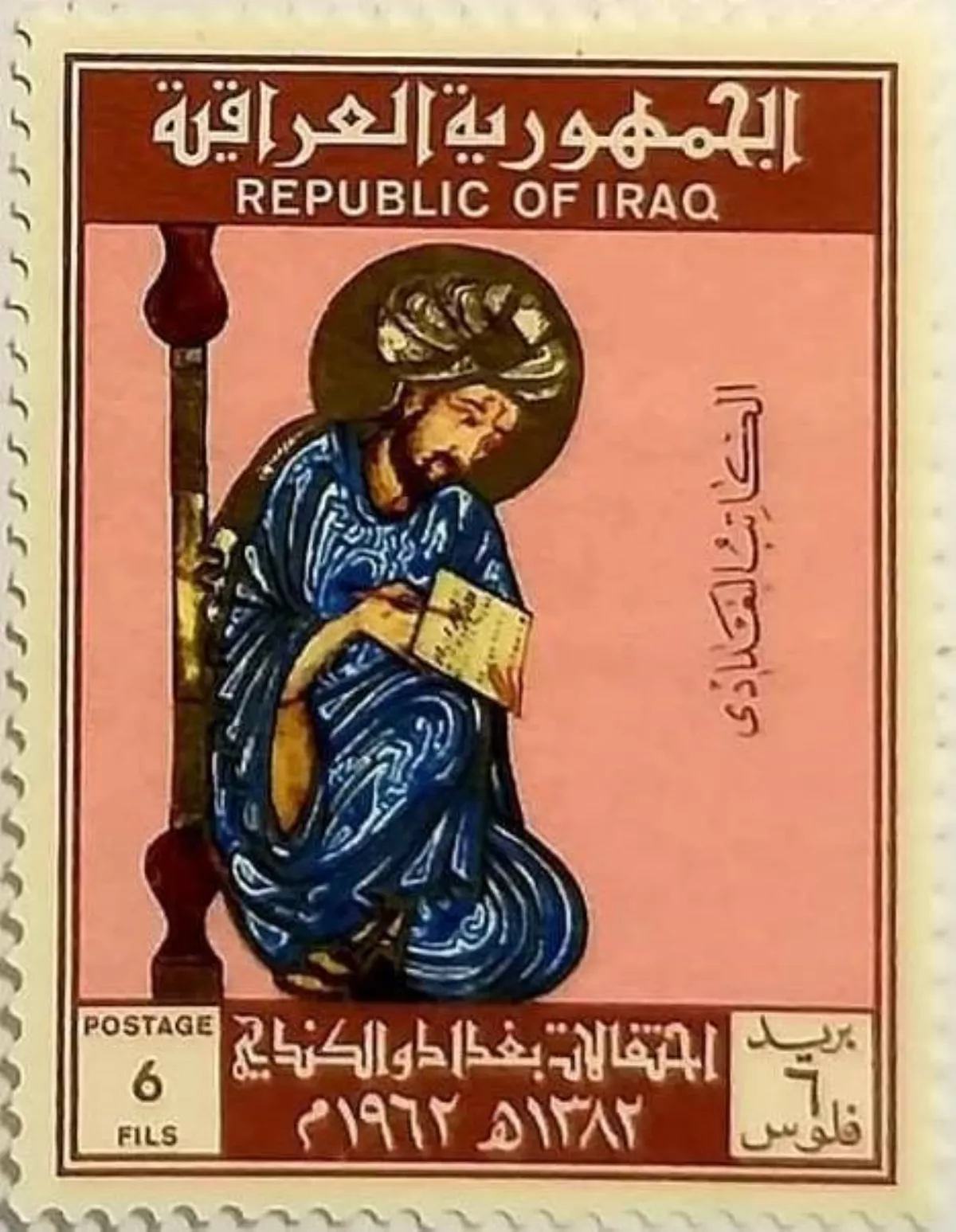 1.
1. Al-Kindi was the first of the Islamic peripatetic philosophers, and is hailed as the "father of Arab philosophy".

 1.
1. Al-Kindi was the first of the Islamic peripatetic philosophers, and is hailed as the "father of Arab philosophy".
Al-Kindi became a prominent figure in the House of Wisdom, and a number of Abbasid Caliphs appointed him to oversee the translation of Greek scientific and philosophical texts into the Arabic language.
Al-Kindi subsequently wrote hundreds of original treatises of his own on a range of subjects ranging from metaphysics, ethics, logic and psychology, to medicine, pharmacology, mathematics, astronomy, astrology and optics, and further afield to more practical topics like perfumes, swords, jewels, glass, dyes, zoology, tides, mirrors, meteorology and earthquakes.
Al-Kindi was able to create a scale that would enable doctors to gauge the effectiveness of their medication by combining his knowledge of mathematics and medicine.
Al-Kindi was born in Kufa to an aristocratic family of the Arabian tribe of the Kinda, descended from the chieftain al-Ash'ath ibn Qays, a contemporary of Muhammad.
Al-Kindi later went to complete his studies in Baghdad, where he was patronized by the Abbasid caliphs al-Ma'mun and al-Mu'tasim.
Al-Kindi was well known for his beautiful calligraphy, and at one point was employed as a calligrapher by Caliph al-Mutawakkil.
Al-Kindi carried out this mission from the House of Wisdom, an institute of translation and learning patronized by the Abbasid Caliphs, in Baghdad.
Al-Kindi took his view of the Solar System from Ptolemy, who placed the Earth at the centre of a series of concentric spheres, in which the known heavenly bodies are embedded.
Al-Kindi was the first major writer on optics since antiquity.
Al-Kindi authored works on a number of important mathematical subjects, including arithmetic, geometry, the Hindu numbers, the harmony of numbers, lines and multiplication with numbers, relative quantities, measuring proportion and time, and numerical procedures and cancellation.
Al-Kindi wrote four volumes, On the Use of the Hindu Numerals which contributed greatly to diffusion of the Hindu system of numeration in the Middle-East and the West.
Al-Kindi was influenced by the work of al-Khalil, who wrote the Book of Cryptographic Messages, which contains the first use of permutations and combinations to list all possible Arabic words with and without vowels.
Al-Kindi was the first theoretician of music in the Arab-Islamic world whose works have come down to us.
Al-Kindi transferred the Greek tonal system to the Arabic lute.
Al-Kindi is known to have written treatises on music theory.
Al-Kindi's own thought was largely influenced by the Neo-Platonic philosophy of Proclus, Plotinus and John Philoponus, amongst others, although he does appear to have borrowed ideas from other Hellenistic schools as well.
Al-Kindi makes many references to Aristotle in his writings, but these are often unwittingly re-interpreted in a Neo-Platonic framework.
Al-Kindi theorized that there was a separate, incorporeal and universal intellect.
Al-Kindi argues that the external agency of this intellect is necessary by saying that human beings cannot arrive at a universal concept merely through perception.
Al-Kindi says that the soul is a simple, immaterial substance, which is related to the material world only because of its faculties which operate through the physical body.
Al-Kindi then connects this with a Neo-Platonist idea, by saying that our soul can be directed towards the pursuit of desire or the pursuit of intellect; the former will tie it to the body, so that when the body dies, it will die, but the latter will free it from the body and allow it to survive "in the light of the Creator" in a realm of pure intelligence.
Al-Kindi argued that, through the faculty of "imagination" as conceived of in Aristotelian philosophy, certain "pure" and well-prepared souls, were able to receive information about future events.
Al-Kindi engaged in disputations with certain Mutazilites, whom he attacked for their belief in atoms, as not all Mutazilites accepted the belief of atomism.
Al-Kindi's works, says Deborah Black, contained all the seeds of future controversy that would be fully realized in al-Ghazali's Incoherence of the Philosophers.
Al-Kindi was a master of many different areas of thought and was held to be one of the greatest philosophers.